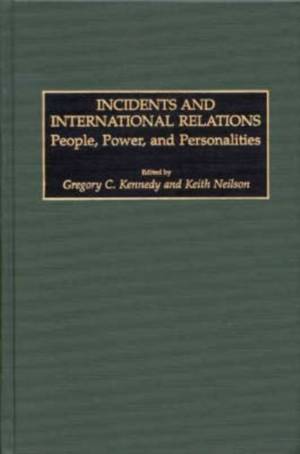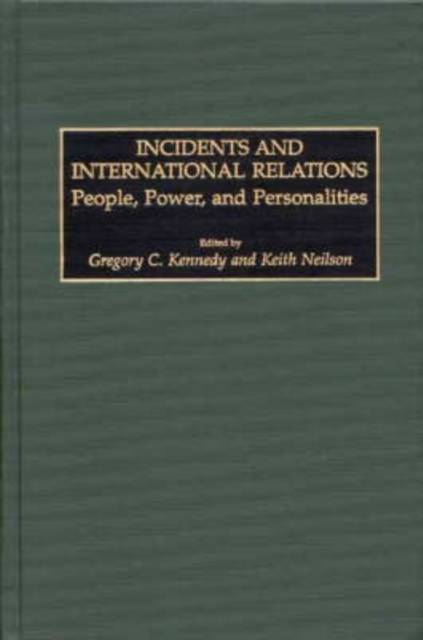
Bedankt voor het vertrouwen het afgelopen jaar! Om jou te bedanken bieden we GRATIS verzending (in België) aan op alles gedurende de hele maand januari.
- Afhalen na 1 uur in een winkel met voorraad
- In januari gratis thuislevering in België
- Ruim aanbod met 7 miljoen producten
Bedankt voor het vertrouwen het afgelopen jaar! Om jou te bedanken bieden we GRATIS verzending (in België) aan op alles gedurende de hele maand januari.
- Afhalen na 1 uur in een winkel met voorraad
- In januari gratis thuislevering in België
- Ruim aanbod met 7 miljoen producten
Zoeken
Incidents and International Relations
People, Power, and Personalities
€ 161,45
+ 322 punten
Omschrijving
Historians often ignore, treat cursorily, or relegate to footnotes specific incidents in international relations in order to facilitate the construction of a larger narrative. The contributors to this volume argue that researchers do so to their peril, as individual or seemingly isolated incidents can play significant roles in the overall course of history. Incidents are crucial in determining the mental maps that decision makers form regarding the countries and individuals with whom they interact. Incidents can either initiate or block new policies with consequences that are both far-reaching and unexpected.
People make foreign policy and an understanding of what elements of an incident were important to these individuals at key points essential to an appreciation of policies subsequently advocated. How individuals view other cultures and nations, how they react to the actions of such nations, and their perceptions of such actions all form key components in this study. Using a variety of examples, these essays show the value of detailed examinations of events, illuminating such matters as British policy in the Far East, French imperial policy, Italian military actions in the interwar period, British attitudes toward Hitler, and the effect of the Soviet Union on British thinking in the 1930s.Specificaties
Betrokkenen
- Uitgeverij:
Inhoud
- Aantal bladzijden:
- 208
- Taal:
- Engels
- Reeks:
Eigenschappen
- Productcode (EAN):
- 9780275965969
- Verschijningsdatum:
- 28/02/2002
- Uitvoering:
- Hardcover
- Formaat:
- Genaaid
- Afmetingen:
- 154 mm x 241 mm
- Gewicht:
- 498 g

Alleen bij Standaard Boekhandel
+ 322 punten op je klantenkaart van Standaard Boekhandel
Beoordelingen
We publiceren alleen reviews die voldoen aan de voorwaarden voor reviews. Bekijk onze voorwaarden voor reviews.








